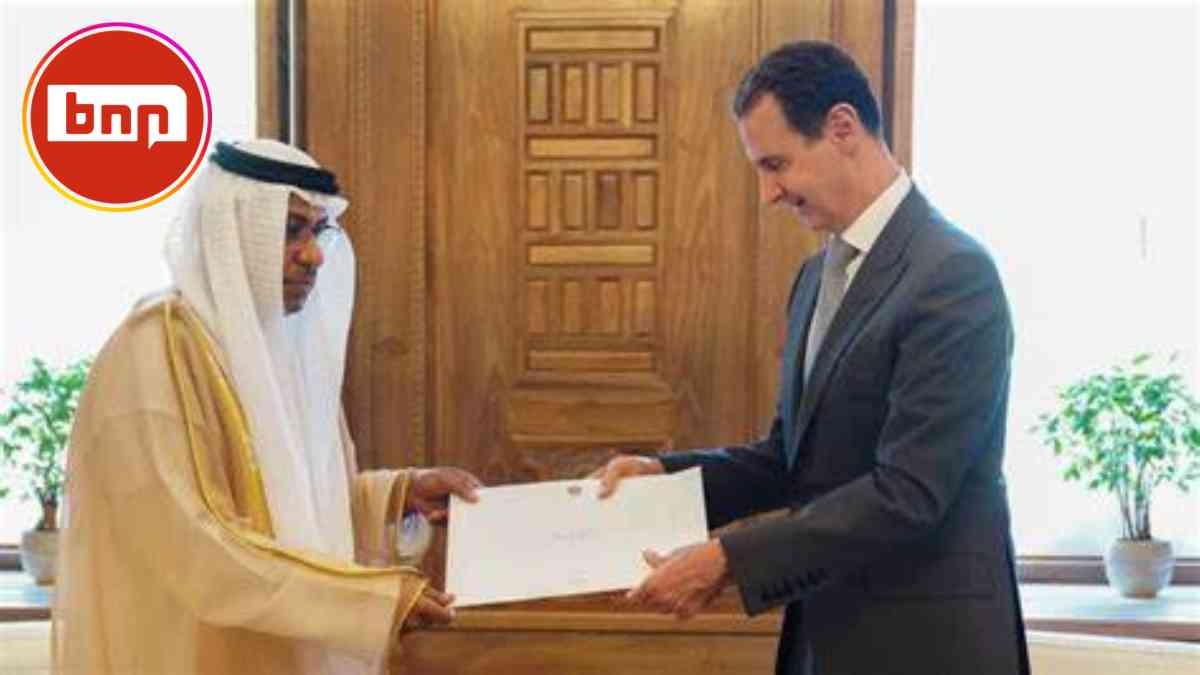A significant shift in international diplomacy could be on the horizon, as the United Arab Emirates (UAE) has invited Syrian President Bashar al-Assad to the United Nations’ COP28 Climate Summit. Set to commence on November 30 in Dubai, this could mark Assad’s inaugural appearance at a global summit since the initiation of Syria’s catastrophic civil war in 2011.
The UAE embassy in Damascus announced this invitation via a Twitter post. This gesture, validated by Syria’s state-run news agency SANA, comes straight from Sheikh Mohamed bin Zayed Al Nahyan, the ruler of Abu Dhabi and president of the UAE. Nonetheless, this could spark diplomatic friction among nations still enforcing sanctions on Assad’s administration due to human rights abuses during the Syrian conflict.
Adding to the intrigue, the invitation coincides with the already contentious COP28 Climate Summit, given the selection of Sultan Al Jaber, CEO of the state-run Abu Dhabi National Oil Company, as its president. As one of the globe’s largest oil and gas firms, this decision has been met with skepticism by environmental campaigners and analysts.
Responding to these apprehensions, a representative for COP28 issued a statement to Reuters earlier this week. They emphasized the Summit’s commitment to an inclusive process that yields transformative solutions, necessitating the participation of all parties, irrespective of political disagreements, in the critical global dialogue on climate change.

The UAE’s invitation is a further indication of Assad’s gradual reacceptance on the world stage. In March, he visited the UAE on a formal invitation – his first to an Arab nation since the commencement of the Syrian civil war in 2011. This marked a crucial step in rebuilding Syria’s relationships with other Arab countries, which culminated in the recent agreement by Arab nations to reinstate Syria into the Arab League.
The US voiced multiple objections to Syria’s re-entry into the Arab League, holding the Assad administration responsible for the civilian death toll exceeding 300,000 and the displacement of millions during the Syrian civil war.
The invitation to COP28 clearly signals the UAE’s readiness to interact with Syria, an action that might draw criticism from countries and human rights groups that view Assad’s regime as an outcast due to its involvement in the Syrian conflict. Assad’s potential presence at the summit could further complicate the diplomatic landscape amid the international community’s struggle with the multi-dimensional challenges of climate change.
However, this also highlights the broader trend of the UAE and other Arab states’ increasing inclination to reconnect with Syria, illuminating the intricacies of international diplomacy in a region fraught with enduring conflicts and disputes.
As the COP28 Climate Summit approaches, anticipation builds not only for the climate solutions it aims to deliver but also for the political narratives and diplomatic strategies that might develop in its wake.
©world-news.biz
